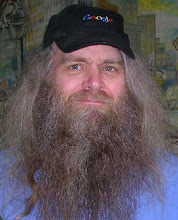boil down to aspects of the same challenge:
- a physiological model of the brain
- computer-game characters that are psychologically realistic
- a universal topic-indexing system (for webpages and local files)
- smart applications that can guess what you're trying to do
- an intuitive programming language
and in each case we can imagine that the
gap
we need to cross
is the gap between science and art
snow's two cultures
with their orthogonal
orders of merit
for it's the literary novelists
who have the best grasp of psychological characters
and it's an intuitive art to
discern the human priorities
that make an app
or an indexing scheme
or a programming language
apt
or fit
all programming languages are built on
a shared set of basic data types:
boolean integer real literal string
that could hardly be more abstract
and they're combined via the cpu's
very limited, very abstract
instruction set
and any random segment of computer code
will tell you little or nothing
about what sort of program it comes from
but suppose we start a database of code segments
and request of programmers
that each time they use a segment
they annotate the database
with a description of the realworld problem
that segment was meant to solve
which would mean, first of all
specifying what units of measure
the integers and reals were measuring
what realworld propositions
the booleans were asserting or denying
what realworld entities
the strings and literals described
and as our database bogs down
in an infinity of particulars
we try to sort and generalise and categorise
the ways code fragments can map onto the world
and perhaps we find
that identical fragments
form distinct ensembles
(time is like space
a continuous dimension
except when it isn't)
so now our simple data types
and opcodes
are seen to have a new
barely articulated
over-layer
of semantics
necessarily encompassing
the entirety of human experience
often boiling down
to units of measure
grams dollars pixels seconds
or strength agility courage health
